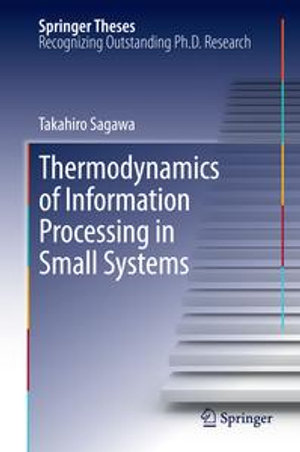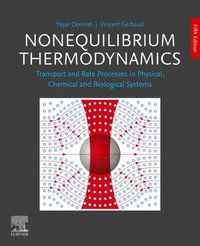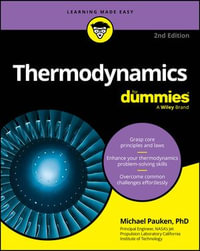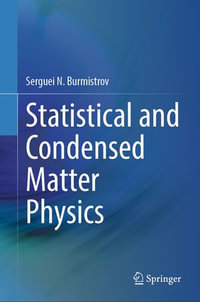
eTEXT
Thermodynamics of Information Processing in Small Systems
By: Takahiro Sagawa
eText | 14 September 2012
At a Glance
eText
$209.00
or
Instant online reading in your Booktopia eTextbook Library *
Read online on
Desktop
Tablet
Mobile
Not downloadable to your eReader or an app
Why choose an eTextbook?
Instant Access *
Purchase and read your book immediately
Read Aloud
Listen and follow along as Bookshelf reads to you
Study Tools
Built-in study tools like highlights and more
* eTextbooks are not downloadable to your eReader or an app and can be accessed via web browsers only. You must be connected to the internet and have no technical issues with your device or browser that could prevent the eTextbook from operating.
ISBN: 9784431541684
ISBN-10: 4431541683
Series: Springer Theses
Published: 14th September 2012
Format: ePUB
Language: English
Publisher: Springer Nature
You Can Find This eBook In
This product is categorised by
- Non-FictionSciencePhysicsThermodynamics & Heat
- Non-FictionComputing & I.T.Computer Science
- Non-FictionEngineering & TechnologyTechnology in GeneralNanotechnology
- Non-FictionSciencePhysicsQuantum Physics & Quantum Mechanics & Quantum Field Theory
- Non-FictionSciencePhysicsStatistical Physics
- Non-FictionReference, Information & Interdisciplinary SubjectsResearch & InformationInformation theoryCybernetics & Systems Theory
- Non-FictionEngineering & TechnologyMechanical Engineering & MaterialsMaterials Science
- Non-FictionSciencePhysicsMaterials & States of MatterCondensed Matter Physics including Liquid State & Solid State Physics
- Non-FictionLibrary & Info SciencesLibrary & Information Services























